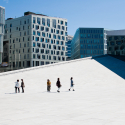7 Profitable Investment Directions for 2024 in Russia
 According to recent statistics, Russians are increasingly turning to investments in 2024. A notable trend is the surge in mortgage applications for residential properties, marking a peak in recent years, with total investments in real estate reaching 318 billion rubles. Specifically, investments in residential properties have more than doubled to 110 billion rubles. In the commercial real estate sector, investments in warehouses increased to 53.7 billion rubles, and in offices to 93.4 billion rubles, representing increases of 2.6 and 1.6 times respectively compared to the same period last year.
According to recent statistics, Russians are increasingly turning to investments in 2024. A notable trend is the surge in mortgage applications for residential properties, marking a peak in recent years, with total investments in real estate reaching 318 billion rubles. Specifically, investments in residential properties have more than doubled to 110 billion rubles. In the commercial real estate sector, investments in warehouses increased to 53.7 billion rubles, and in offices to 93.4 billion rubles, representing increases of 2.6 and 1.6 times respectively compared to the same period last year.This trend reflects not only a desire to preserve earnings but also to generate passive income. Additionally, there's a growing inclination towards securities investments in the stock market, with an increase in initial investment amounts. Sergey Potanin, founder of BLOKS coworking network, highlighted 7 lucrative investment directions.
1. Bank Deposits
One of the simplest and safest investment methods is placing funds in bank deposits. It involves choosing an appropriate interest rate and account terms. Opting for accounts without partial withdrawal or additional deposits often yields higher annual interest rates. Conversely, flexible accounts offer lower returns but greater liquidity.
Currently, average deposit rates range from 14-16%. Bank deposits provide security through insurance but typically yield lower returns compared to other investment options. Interest income from deposits is subject to taxation.
2. Precious Metals
Investing in precious metals such as gold, silver, platinum, and palladium involves purchasing bullion, coins, or opening a non-personal metal account through banks. Prices for these metals are regularly published by the Bank of Russia, showing continued growth in 2024. For instance, gold prices rose by an average of 5.9% in March alone. This investment avenue is considered more versatile than others as precious metals tend to retain value and show continuous price appreciation over time, typically yielding returns over a longer investment horizon of 4-6 years.
3. Stocks
Investing in stocks remains a perennially relevant option. Investors can earn from dividends or capitalize on stock price appreciation through trading. Dividend income provides regular payouts quarterly, semi-annually, or annually, while capital gains are realized upon selling stocks at higher prices. A 13% tax is levied on stock market gains.
Analysts forecast the Moscow Exchange index to potentially reach 3600-3800 points by year-end, up to 10% higher than current levels. Individual stock performance may exceed index growth, offering opportunities for both passive income and substantial returns, albeit with high market volatility.
4. Bonds
Bonds offer lower risk compared to stocks, being more stable and predictable in pricing, with approximately 15% higher returns than bank deposits. They are particularly relevant during economic crises, offering easier management and high liquidity. However, bondholders face the risk of issuer default.
5. Coworking Spaces
The coworking office market in Russia is experiencing significant growth. Despite a general downturn in real estate in 2022, Moscow alone saw an increase in flexible office space to 367.4 thousand square meters by January 2023. This capacity is expected to grow by 11% to 448 thousand square meters by 2024, driven by the sharing economy's rise. Investments in coworking spaces represent a promising niche, with the sharing economy projected to increase their market share to 8% in the next decade outside major cities.
"Investments in innovative projects yield maximum profitability today. Companies like Google, Yandex, Tesla, Apple, Amazon, and Open IE are built on the inevitable future economy. Coworking networks like BLOKS exemplify changes in property ownership paradigms in the sharing economy era, where shared ownership prevails over outright purchases. BLOKS has grown 7-fold in 5 years, with investors typically earning 85% annually — this is the future economy!" commented Sergey Potanin.
6. Residential Real Estate
Residential properties offer stable passive income streams. Properties located near metro stations, major transport routes, or busy districts command higher prices in major cities. The investment strategy involves purchasing and leasing residential units, which accounted for a 2.4-fold increase in investments to 110 billion rubles over the first five months of 2024 — the highest in a decade.
7. Commercial Real Estate
Another viable investment option is leasing commercial properties. Unlike residential properties, commercial spaces offer higher rental yields due to higher tenant demand. Factors such as accessibility and surrounding infrastructure significantly influence property value. Recent data indicates that office spaces accounted for 41% of investments in the first two months of 2024, with warehouse and residential properties sharing 23% and 22% of investments respectively. Commercial leases offer stable, regular income streams, often with long-term tenancy agreements, which are advantageous to property owners.
Investment choice ultimately rests with the investor. However, assessing financial capabilities, planning expected returns, and considering risks are universal prerequisites before committing to any investment option.









